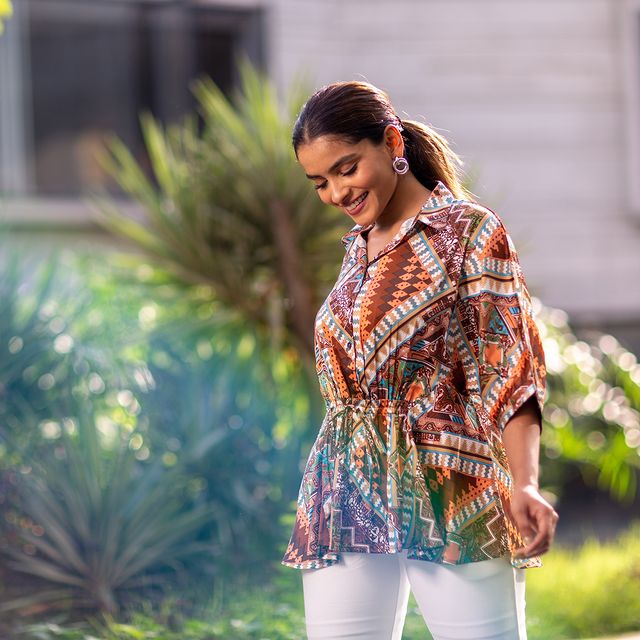The fashion industry is undergoing a significant shift.
Driven by a growing awareness of the environmental and social impact of traditional fashion practices, a new breed of brands is emerging. These are the sustainable and ethical fashion brands.
They are redefining the industry, placing sustainability and ethical practices at the heart of their operations. From sourcing sustainable materials to ensuring fair labor practices, these brands are making a difference.
In this guide, we delve into the world of sustainable and ethical fashion. We explore what these terms mean, why they matter, and how they are shaping the future of fashion.
We also provide a curated list of sustainable fashion brands, from New York City to the global stage. Whether you’re a fashion enthusiast or a conscious consumer, this guide is for you.
Join us as we explore the ultimate guide to sustainable and ethical fashion brands.
Understanding Sustainable and Ethical Fashion
Sustainable and ethical fashion is more than a trend. It’s a movement that seeks to transform the fashion industry from within.
At its core, it’s about creating clothes that respect the environment and the people involved in their production. But what does this mean in practice?
To understand this, we need to look at the environmental and social impact of fashion. We also need to define what sustainability and ethical practices mean in the context of fashion.
Let’s start by examining the impact of fashion on our planet and its inhabitants.
The Environmental and Social Impact of Fashion
The fashion industry has a significant environmental footprint. It’s one of the largest polluters globally, contributing to climate change, water pollution, and waste generation.
Fast fashion, in particular, is notorious for its environmental impact. It promotes a throwaway culture, leading to overconsumption and waste.
On the social front, the industry often overlooks workers’ rights and conditions, especially in low-cost production countries.
Defining Sustainability in Fashion
Sustainability in fashion is about reducing this environmental and social impact. It involves using sustainable materials, minimizing waste, and reducing energy consumption.
It also means embracing circular fashion concepts, such as recycling and upcycling. These practices aim to extend the life of clothes and reduce their environmental footprint.
But sustainability is not just about the environment. It’s also about social justice and fair labor practices.
Ethical Practices in the Fashion Industry
Ethical fashion is about treating people fairly. It involves ensuring decent working conditions, fair wages, and respect for workers’ rights.
It also means avoiding child labor, forced labor, and other exploitative practices.
In essence, ethical fashion is about creating clothes that respect both people and the planet. It’s about fashion that feels good, not just looks good.
The Rise of Sustainable Fashion in NYC
New York City (NYC) has always been a fashion hub. But in recent years, it has also become a hotspot for sustainable fashion.
The city is home to a growing number of brands that prioritize sustainability and ethics. These brands are redefining fashion in the city, one garment at a time.
Spotlight on Sustainable Fashion Brands NYC
Among the sustainable fashion brands in NYC, several stand out for their commitment to sustainability and ethics.
One such brand is Eileen Fisher. Known for its timeless designs, the brand is committed to using sustainable materials and ethical labor practices.
Another noteworthy brand is Mara Hoffman. The brand focuses on creating high-quality, durable pieces that can be worn for years.
Then there’s Zero + Maria Cornejo. This brand is known for its innovative designs and commitment to local production.
Finally, there’s Study NY. This brand is all about transparency, revealing every detail about its supply chain and production processes.
The Role of Certifications and Standards
Certifications and standards play a crucial role in sustainable fashion. They provide a benchmark for sustainability and ethics in the industry.
Brands can earn certifications for various aspects of sustainability. These include the use of organic materials, fair labor practices, and low environmental impact.
Standards, on the other hand, provide guidelines for sustainable practices. They help brands navigate the complex landscape of sustainability in fashion.
A Curated List of Noteworthy Sustainable Fashion Brands
Sustainable fashion is not a niche market anymore. It has become a mainstream trend, with numerous brands embracing sustainability.
Here are some noteworthy sustainable fashion brands that are making a difference:
- Patagonia
- Eileen Fisher
- Everlane
- Reformation
- Stella McCartney
These brands are committed to ethical labor practices, sustainable materials, and transparency in their supply chains.
Luxury Sustainable Fashion Brands Leading the Way
The luxury fashion sector is also embracing sustainability. Many luxury brands are redefining luxury with their commitment to sustainability and ethics.
Here are some luxury sustainable fashion brands leading the way:
- Stella McCartney
- Gabriela Hearst
- Mara Hoffman
- Mother of Pearl
- Vivienne Westwood
These brands prove that luxury and sustainability can coexist. They are setting new standards for the entire fashion industry.
The Consumer’s Role in Sustainable Fashion
Consumers play a crucial role in promoting sustainable fashion. Their purchasing decisions can influence the practices of fashion brands.
By choosing sustainable brands, consumers can support ethical labor practices and environmental sustainability. They can also help reduce waste and pollution in the fashion industry.
However, consumers need to be aware of greenwashing tactics used by some brands. These tactics can mislead consumers into believing that a brand is more sustainable than it actually is.
How to Support Ethical Brands and Avoid Greenwashing
Supporting ethical brands involves more than just buying their products. It also involves understanding their values and practices.
Consumers should look for transparency in a brand’s supply chain. They should also consider the brand’s labor practices and the materials used in their products.
To avoid greenwashing, consumers should be skeptical of vague or unsubstantiated claims about sustainability. They should also look for certifications and standards that verify a brand’s sustainability claims.
Conclusion: The Future of Fashion
The future of fashion lies in sustainability and ethical practices. As consumers become more aware of the environmental and social impact of their purchases, demand for sustainable fashion is likely to increase.
Brands that embrace sustainability and ethical practices can expect to see growth and success in the future. They can also contribute to positive social change and environmental conservation.
In conclusion, sustainable and ethical fashion is not just a trend. It is a necessary shift in the fashion industry that can lead to a more sustainable and equitable world.







